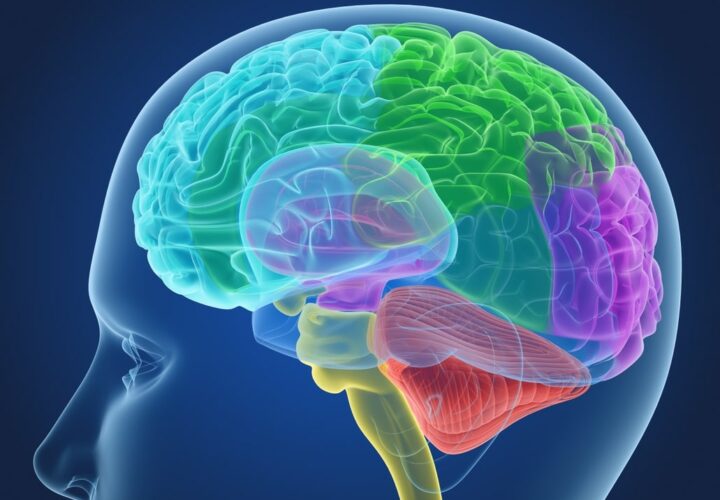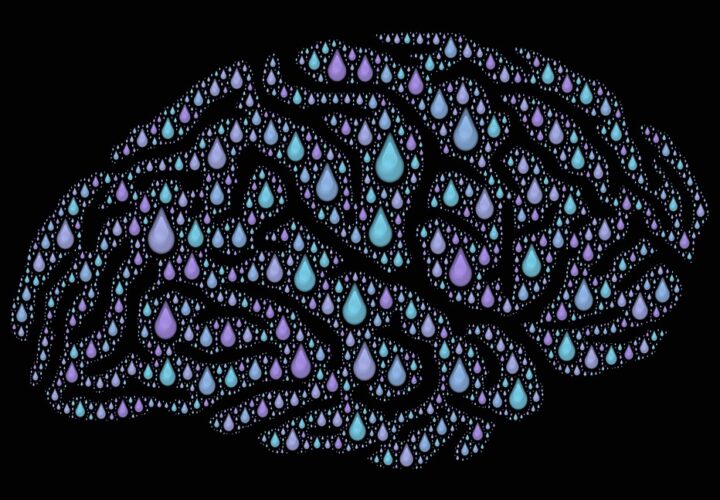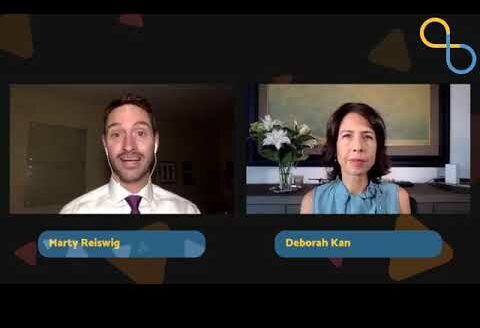Alzheimer’s advocate and former New York Times reporter Phil Gutis was 54 years old when he discovered he has early-onset Alzheimer’s after enrolling in a drug trial and receiving an email with the diagnosis. Gutis, who learned he has the ApoE4 gene that greatly increases Alzheimer’s risk, says he remembers experiencing memory issues as early as his 20s, including forgetting a good friend worked with him at their university’s school newspaper several years after graduation. Today, Gutis still writes about his experiences living with Alzheimer’s in The New York Times, including trying to cling onto memories of his pets and how the recent Biogen drug failure made him feel like he was “getting erased.”
- Gutis says that while he has always struggled with numbers and directions, his early-onset Alzheimer’s diagnosis makes figuring out both nearly impossible
- Unlike most Alzheimer’s patients, Gutis experiences issues with his long-term memory, something he plans to ask his neurologist about during an upcoming visit
- His maternal and paternal grandmother both developed late-onset Alzheimer’s, but Gutis’ ApoE4 gene likely increased his risk of developing early-onset Alzheimer’s
Being Patient spoke to Gutis about symptoms he had before his early-onset Alzheimer’s diagnosis, how he was diagnosed with Alzheimer’s and his genetic link to the disease.
Discovering an Early-onset Alzheimer’s Diagnosis from a Drug Trial
Being Patient: Can you tell us about the Biogen trial and how you came to get diagnosed with early-onset Alzheimer’s?
Phil Gutis: My sister saw an ad for a facility looking for people experiencing memory issues. She sent it to me and after some back-and-forth in my mind, I called the facility and started their screening process. When we first met, they didn’t think that I was going to be a candidate, but then we did a memory test and I did poorly enough to move forward to an MRI, a PET scan and a diagnosis of early-onset Alzheimer’s.
Being Patient: What were some of the memory issues you were having at that time?
Phil Gutis: I honestly don’t remember, but I know my husband, Tim, told a story that stuck in my mind for some reason. One morning, I came out of the bedroom and thought our indoor-outdoor cat was home, said hello to him, went back inside the bedroom to get dressed and came out, then said to Tim, “Have you seen Max?” after already saying hello. I don’t recall that, but apparently, it made quite an impact on him.
I believe that I have been experiencing what I call memory holes since my late 20s and early 30s. Things had happened that just didn’t get filed in the right place in the computer that is our brain. The prime example is my best friend growing up apparently ended up at Penn State where I went to school and worked for the school newspaper where I was the editor. Five or six years after graduating, I ran into him and he said, “Didn’t we have a great time on the paper together?” I looked at him like he was on another planet. I had no recollection of him being there. I think my short-term memory is generally pretty good. Three years after diagnosis, my long-term memory is rapidly disappearing. I know it’s completely backwards to what everybody else experiences, but that’s my journey with this disease.
Being Patient: Why were the doctors from the trial confident that you have early-onset Alzheimer’s?
Phil Gutis: The fact that I did poorly on the memory test, the Repeatable Battery for the Assessment of Neuropsychological Status (RBANS). I also want to ask my neurologist to show me the pictures from the PET scans and MRIs because I’ve never seen them. The value of getting my diagnosis through a drug trial was that I didn’t pay a dime and people struggle to get these diagnoses. Insurance companies often won’t pay for these expensive tests. The downside is that most of the information was proprietary so I didn’t see it. Happily, my neurologist was running the study at the University of Pennsylvania so he will have information that hopefully he can share with me.
Experiencing Symptoms of Dementia and a Genetic Link to Alzheimer’s
Being Patient: With Alzheimer’s, people often experience issues with their short-term memory. Have you ever asked the doctor why you’ve been having issues with your long-term memory?
Phil Gutis: I think the answer is that they don’t know. I had an appointment with my neurologist at the University of Pennsylvania and they had to postpone my medical checkup, which is really all the medical care that I’m getting right now. It hasn’t been rescheduled, but I plan to tell him I don’t understand this issue.
In a piece I wrote most recently for The New York Times about the Biogen trial being cancelled, I wrote that it felt like I was getting erased. It felt like someone was literally taking an eraser and wiping me away. It’s a very weird feeling. The morning we all learned that the Biogen trial failed, the night before, I lied in bed trying to remember my dog who passed away last year. I have pictures of him in my head, but I realized they were images I recalled from pictures. I didn’t have freestanding memories of being with him for 12 years and we were together all the time. It was a very freaky feeling to have lost that. I could picture the image of my dog, but not how we interacted. I was telling a friend about this and she said, “Don’t you remember, we used to walk on a trail and you used to run ahead and he tried to trip you?” and I was like, “No, I don’t remember that.” Now that she mentions it, maybe a little bit, but not in a way that you would necessarily remember something. Last year, my husband and I did a party for the Alzheimer’s Association for The Longest Day and it was a big blowout. We did it at the 18th century mill where I used to work and I have no memory of that party. I know I was there. I’ve seen pictures of it, but I have no real-time memory of that event.
Being Patient: Have you had any trouble remembering numbers, times and dates?
Phil Gutis: Math and I have never been the greatest of friends, but now it is much, much worse. Trying to do a tip on a restaurant check is all but impossible in my head. I’ve even gone as far and looking at it and being so baffled by it that I’ve handed it to the cashier and said, “Just put 15 percent on it and I’ll sign it” because I don’t know what the number is. Directions, maps and I have also never been the best of friends, but now it’s all but impossible. I describe it as, you could say to me, “Turn right and continue,” and after the “Turn right” all I hear is “Wah, wah, wah,” like the teacher in the “Peanuts” series. I can handle that first turn right and then I can’t absorb the rest of the information.
Being Patient: Do you have a family history of Alzheimer’s?
Phil Gutis: My father’s mother had late-onset Alzheimer’s. I think my mother’s mother may have also had later-onset Alzheimer’s, but there’s no history of early-onset Alzheimer’s in my family. I do carry the ApoE4 gene. That was part of the discovery process for the Biogen trial. They found that in my blood work and the genetic workup and found the genetic precursors.




